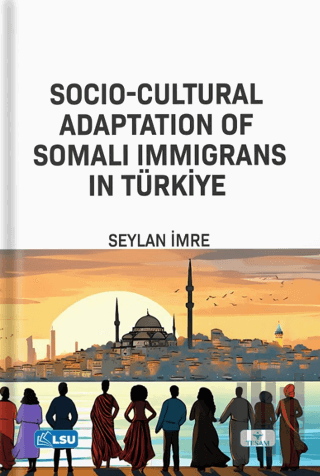
Turkey is one of the countries of preference of immigration for Somali people who leave their country due to security issues, political instability, and economic difficulties arising out of the ongoing civil war and conflicts since the 1990s, as well as drought and concern for the future. After the then Prime Minister Recep Tayyip Erdogan and the accompanying important delegation’s visit to Somalia on 19 August 2011, a new period of closer relations started between the two countries. Although there are studies in the relevant academic literature that focus on the Somali people around the themes of civil war, security, terrorism, education, and religion, there is only a few to no studies that investigate the adaptation processes of Somali people particularly regarding their perceptions and experiences in social life. The relevant literature lacks any study that focuses on the opinions and perceptions of Somali immigrants who willingly go to Ankara and Istanbul through official channels and maintain their lives in Turkey. This study is important since it is the first scholarly endeavor on the subject topic. In this study, the perceptions of the Somali immigrants, who live in Ankara and Istanbul, on their socio-cultural adaptation and the characteristics that they consider to be similar to and different from the characteristics of the Turkish society are examined by employing in-depth interviews and qualitative methods. At the same time, this study has inquired what importance religious and social values, cultural norms, historical ties, education, age, social capital, and networks have on the Somali immigrants’ adaption to the host country. In the fieldwork conducted, examples were identified based on the Somali participants opinions and life experiences. In this regard, various social policy implications are recommended concerning the shortcomings and issues identified, through a select sample of cases, in the socio-cultural adaptation process to the Turkish society.
Turkey is one of the countries of preference of immigration for Somali people who leave their country due to security issues, political instability, and economic difficulties arising out of the ongoing civil war and conflicts since the 1990s, as well as drought and concern for the future. After the then Prime Minister Recep Tayyip Erdogan and the accompanying important delegation’s visit to Somalia on 19 August 2011, a new period of closer relations started between the two countries. Although there are studies in the relevant academic literature that focus on the Somali people around the themes of civil war, security, terrorism, education, and religion, there is only a few to no studies that investigate the adaptation processes of Somali people particularly regarding their perceptions and experiences in social life. The relevant literature lacks any study that focuses on the opinions and perceptions of Somali immigrants who willingly go to Ankara and Istanbul through official channels and maintain their lives in Turkey. This study is important since it is the first scholarly endeavor on the subject topic. In this study, the perceptions of the Somali immigrants, who live in Ankara and Istanbul, on their socio-cultural adaptation and the characteristics that they consider to be similar to and different from the characteristics of the Turkish society are examined by employing in-depth interviews and qualitative methods. At the same time, this study has inquired what importance religious and social values, cultural norms, historical ties, education, age, social capital, and networks have on the Somali immigrants’ adaption to the host country. In the fieldwork conducted, examples were identified based on the Somali participants opinions and life experiences. In this regard, various social policy implications are recommended concerning the shortcomings and issues identified, through a select sample of cases, in the socio-cultural adaptation process to the Turkish society.
| Taksit Sayısı | Taksit tutarı | Genel Toplam |
|---|---|---|
| Tek Çekim | 197,25 | 197,25 |











